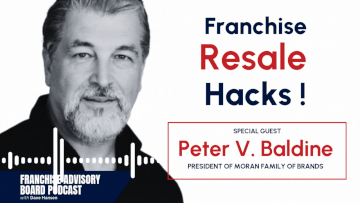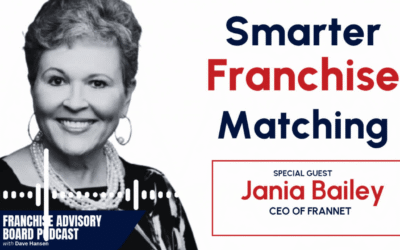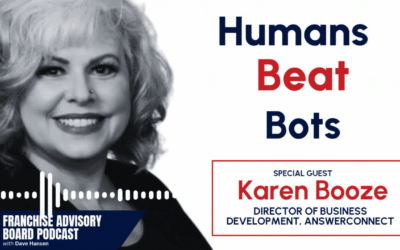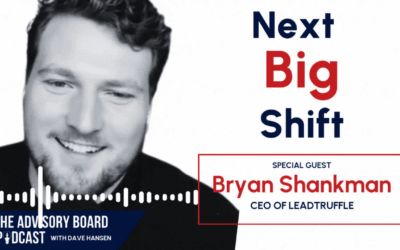On this episode of The Advisory Board Podcast, host Dave Hansen, President of ClientTether, welcomes Peter Baldine, President of Accelerated Development, Inc.
Pete has been in franchising since the early 1980s — from helping Jiffy Lube grow from one store to 1,100, to leading Moran Family Brands for 25 years. With that kind of track record, he’s seen the full franchise lifecycle and knows that a franchisee’s exit is just as important as their launch.
This conversation dives deep into how to build resale programs that protect franchisee equity, keep systems strong, and honor the brand promise.
Why This Matters Now: The “Gray Tsunami”
I like to call it the gray tsunami — over 1.2 million Americans turn 65 every day. And in franchising, about 40% of owners are Boomers.
That means a massive wave of franchise owners will soon be looking for a way out. If you don’t have a resale program in place, you risk shrinking your system on the back end as fast as you’re trying to grow it on the front end.
Pete sees it firsthand:
“Thirty-three percent of our owners have been in for 20+ years, and 16% have been in for 30+ years. That creates challenges when it’s time to exit.”
Step 1: Start Early — Like, a Year Early
Pete doesn’t wait until renewal paperwork shows up. He literally keeps the franchise expiration report on the corner of his desk year-round:
“At least a year in advance, I start calling owners. Do you plan on renewing? Do you want to list it? If so, let’s start now.”
Most brands don’t bring it up until 90 days before expiration. That’s way too late. You can’t clean up financials, line up buyers, or create a smooth transition in that short a window.
Step 2: Clean Up the Books if You Want a Strong Valuation
I learned this myself when my wife and I sold our franchises earlier this year. Thankfully, I had experience and knew what the business was worth — but many franchisees don’t.
Pete explains why:
- SBA loans require three years of clean P&Ls and tax returns.
- If franchisees run too many personal expenses through the business to avoid taxes, the valuation suffers.
As I like to remind people: if your EBITDA is $50,000, your business is worth about $250,000 — no matter how much personal benefit you pulled out.
The lesson? Franchisees need coaching on the tradeoff between tax savings now and a healthy valuation later.
Step 3: Control the Buyer Pipeline (Don’t Outsource It)
Too many franchisors tell owners, “Go find a broker.” The result? High fees and unqualified buyers who may not even want to stay franchised.
Pete’s approach is different:
“We use tools like SpotOn’s psychometric profiles to make sure candidates fit our culture. It’s not about pass/fail — it’s about knowing strengths, weaknesses, and where training is needed.”
That cultural fit matters. Pete shared the story of a 38-year franchisee who only wanted to sell if the buyer would take care of his employees and customers. By matching the candidate’s profile with top-performing owners, Moran found the right buyer. That deal closed smoothly, and two years later the seller still calls Pete every week — proof that relationships don’t end at resale.
Step 4: Talk Exit from Day One
Here’s the piece that really stuck with me: Pete doesn’t wait until year 10 to mention resale. He introduces it at Discovery Day, before candidates even sign.
“We talk about exit in the very beginning. It reassures them that when it’s time, the franchisor will be in their corner.”
That’s powerful. When you frame resale as part of the journey, not an afterthought, you give franchisees confidence that their equity is protected.
Culture & Engagement: The Secret Sauce
At the end of the day, resale programs aren’t just about contracts and multiples. They’re about people.
Pete said it best:
“We know our franchisees. We know their kids, their spouses. That lets us anticipate when challenges hit — whether it’s illness, divorce, or burnout.”
That level of engagement makes difficult conversations possible — and it keeps franchise systems strong for decades.
Final Thoughts
If you’re a franchisor, your job isn’t done once a new owner signs. You’ve got to steward them through the full lifecycle: launch, growth, renewal, and exit.
Pete Baldine’s playbook proves that strong resale programs:
- Protect brand equity
- Give franchisees confidence their investment will pay off
- Keep systems thriving for the long haul
Want the full conversation (and plenty more stories from Pete’s 40+ years in franchising)?
Catch the episode on YouTube or Spreaker.




